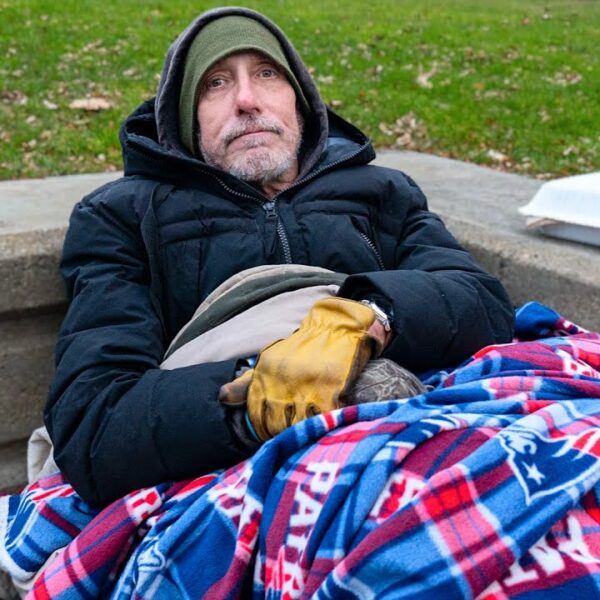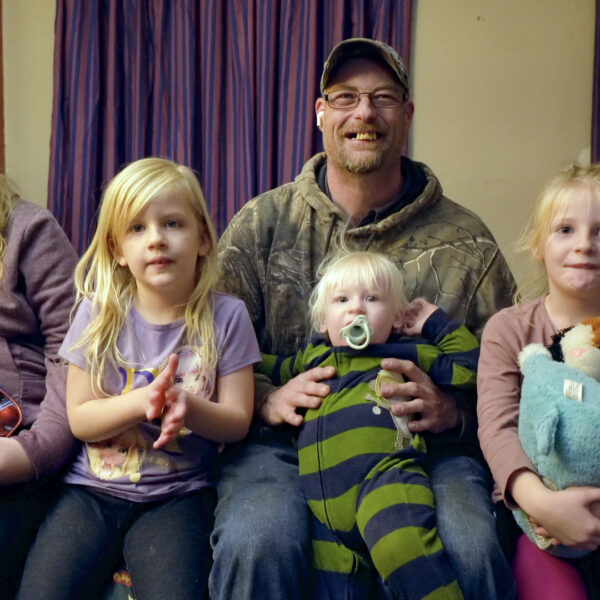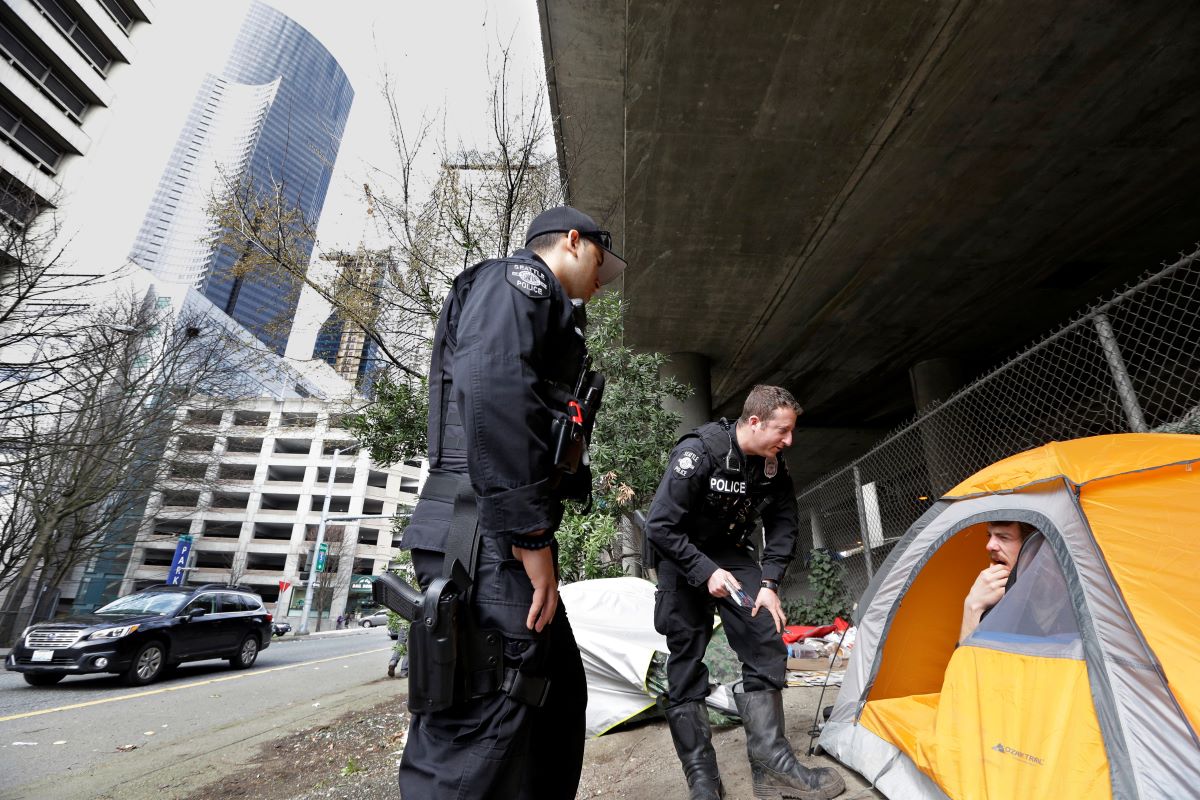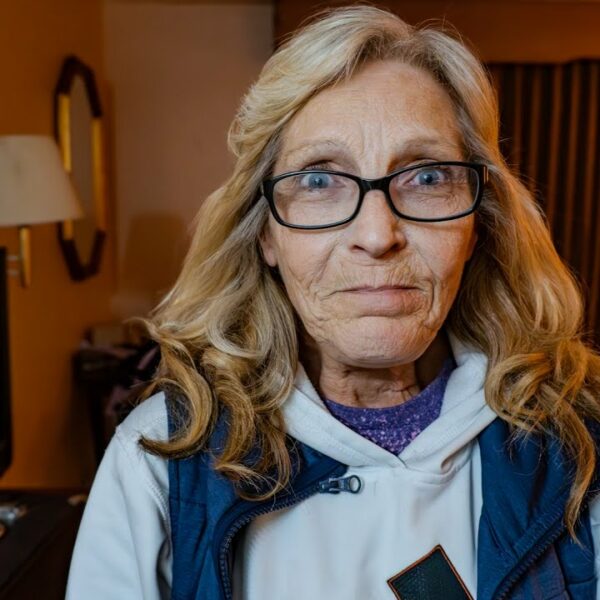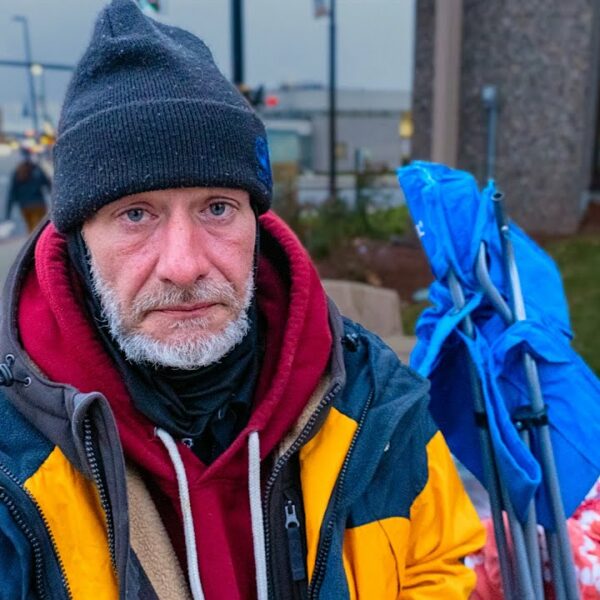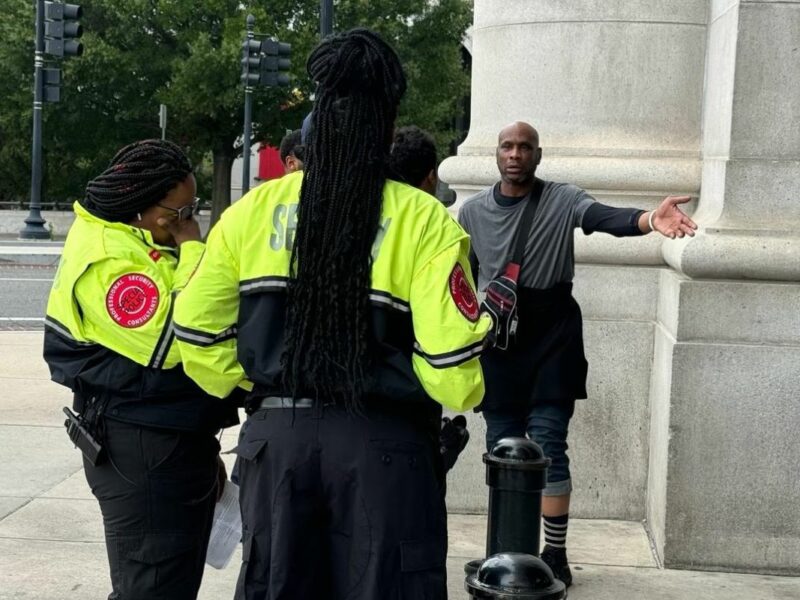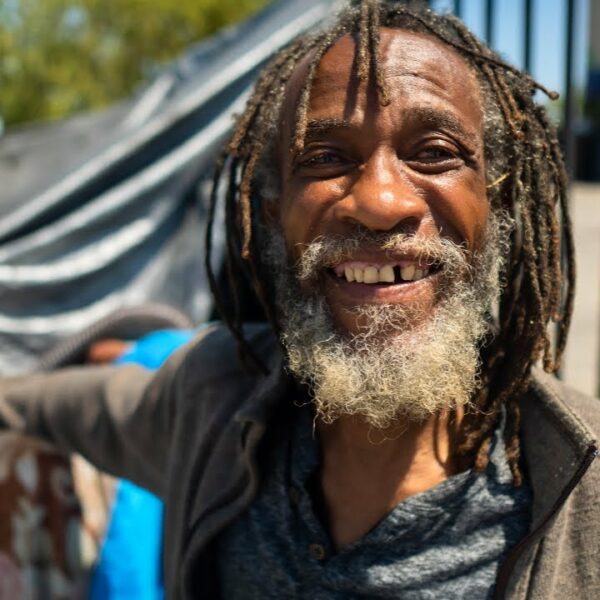All this brutality in order to clear a homeless encampment during the worst days of COVID and the coldest days of winter. It’s not just the police that are unreformable. https://t.co/aHzI6NVCGe
— max (@MaxOnTwitter) December 18, 2020
The accompanying video is extremely unsettling. Distant screams can be heard as a barrage of uniformed police officers storm a Seattle encampment. Rubber bullets ricochet into the air. People are thrust to the ground and violently arrested.
While visibly upsetting, this series of unfortunate events is hardly out of the ordinary. One could argue that it is the norm in terms of how our government currently “clears” homeless encampments.
Under the dark shadow of COVID-19, homeless people, once again, are vilified, ostracized, and swept under the rug. Among other things, this footage serves as a testament to such tactics. It also raises serious questions that advocates must attempt to answer- questions about why encampments exist in the first place and whether or not police are effectively trained to deal with members of the unhoused population.
Homeless Encampments Crowd the Sidewalks of Nearly Every City in the United States. What is the Origin of This?
Homeless encampments, often referred to as tent cities, find their American roots in the Great Depression. During this economic trial, poverty-struck American workers sought refuge in hand-crafted shacks and other types of makeshift shelters because they could no longer afford real homes. In the 1930s, these underdeveloped abodes, when clustered together, were called Shantytowns or Hoovervilles (a not-so-subtle slur against President Herbert Hoover).
It’s essential to understand the origins of homeless encampments in the United States. Through these historical accounts, we get a more accurate picture of what causes tent cities to arise.
What is the connection between the COVID crisis and the Great Depression that makes makeshift shelters prevalent? Contrary to popular opinion, the answer is not drug addiction, nor is it mental illness. Instead, it is poverty that remains the root cause of any tent city’s existence.
In the 1930s, it was a stock market crash that created wide-scale poverty. Today, it is a variety of issues, namely:
- A lack of millions of affordable houses
- Stagnant wages that do not pace with rising rental prices
- Tens of millions of newly unemployed workers, which happened when we failed to react quickly and effectively to the novel Coronavirus
- General wealth inequality
Since Wealth Inequality is Largely to Blame for the Current Homeless Crisis and Tent Cities Cropping Up, Is Criminalization a Reasonable or Effective Solution?
Resoundingly, the answer to this is no. When pressed with questions regarding this issue, police officers candidly confirm they are “not social workers” and not adequately trained to deal with the homeless population in a sensitive or even understanding manner. Further research concludes that one in three incidents of police violence in LA involves a member of the unhoused community.
From a statistical standpoint, the criminalization of life-sustaining activities among the homeless population has drastically increased. Meanwhile, wages have remained stagnant, rental rates have skyrocketed, and unemployment rates just reached an all-time high.
Does this seem like an adequate or even reasonable response to the situation at hand? If poverty is the cause, how can brutal police force possibly be the answer?
Through this lens, it’s easy to see how calling the police to clear a homeless encampment is a bit like calling a plumber to deal with a housefire or reaching out to your dentist to let them know that your car has been stolen. Not only would these actions be futile in achieving the desired result, but there’s no connection between the problem you have and the professional you’re contacting. These actions don’t make logical sense.
Tasking Law Enforcement with Clearing Homeless Encampments Reinforces the Idea that all or Most Homeless People are Dangerous Criminals. This Narrative Is Harmful and Untrue.
When asked where they get their notions of the homeless population, everyday people commonly cite the media and/or personal experience. Therefore, if they witness homeless encampments being cleared violently by police officers, the subliminal message instills the false ideology that homeless people are dangerous and/or criminals.
The aftermath of encampment clearings, especially when carried out violently, is rarely good. Homeless people are often stripped of personal belongings. Sometimes they are cited or imprisoned, which makes them more vulnerable to homelessness in the future.
Noteworthy: During the Pandemic, Eviction Moratoriums Helped to Save Millions of Renters from Enduring the Horrors of Homelessness. Homeless People Were Not Offered Comparable Protections.
The ironic twist is that legislation designed to prevent homelessness did not protect homeless people during the pandemic. While renters were spared from evictions, authorities cleared encampments and boarded up or condemned other spaces unhoused people commonly dwell.
Key Takeaway: Police Are Not Equipped or Trained to Deal with the Homeless Crisis
Whether full or empty, illegal or sanctioned, Encampments are not an acceptable answer to the homeless crisis. Having police clear encampments only exacerbates the problem. Talk to your legislators about making housing a human right so law enforcement can get back to doing what they were trained to do, fighting crime.



